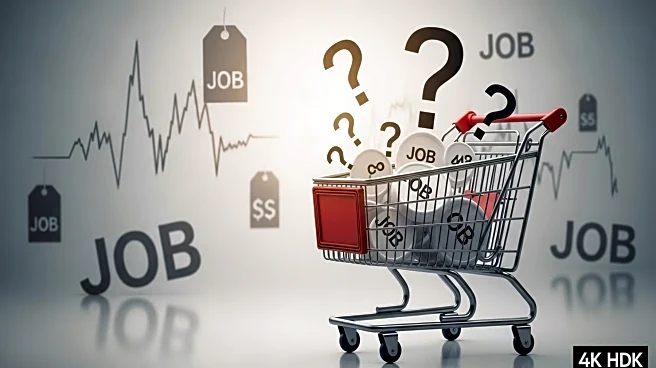What is the story about?
What's Happening?
Consumer sentiment in the United States has shown little change in early October, as Americans anticipate minimal improvements in the job market and inflation. The University of Michigan's preliminary sentiment index for October decreased slightly to 55 from 55.1 in September, marking the lowest level in five months. Despite this decline, the figure was stronger than the median projection by economists surveyed by Bloomberg. Consumers expect prices to rise at an annual rate of 4.6% over the next year, slightly lower than the 4.7% anticipated a month earlier. Over the next five to ten years, they foresee costs increasing at an annual rate of 3.7%, unchanged from September. The survey, conducted from September 23 to October 6, highlights ongoing concerns about high prices and weakening job prospects, with 63% of respondents expecting unemployment to rise in the next year.
Why It's Important?
The subdued consumer sentiment reflects broader economic challenges facing the U.S., including inflation and a soft labor market. These issues are critical as consumer spending accounts for more than two-thirds of economic activity in the country. The expectation of rising unemployment and inflation exceeding income growth could lead to reduced consumer spending, impacting economic growth. The sentiment among Republicans has risen to its highest level since President Trump's first term, indicating political influences on economic perceptions. The decline in buying conditions for durable goods due to tariff concerns further underscores the economic uncertainty. This sentiment could influence policy decisions and economic strategies as stakeholders seek to address these challenges.
What's Next?
The absence of official data releases due to the government shutdown has limited visibility into the economic situation, but private-sector indicators suggest continued softness in the labor market. As consumers remain cautious, policymakers may need to consider measures to boost confidence and address inflation and employment concerns. The upcoming months will be crucial in determining whether consumer sentiment improves or further declines, potentially influencing economic policy and political discourse.

















